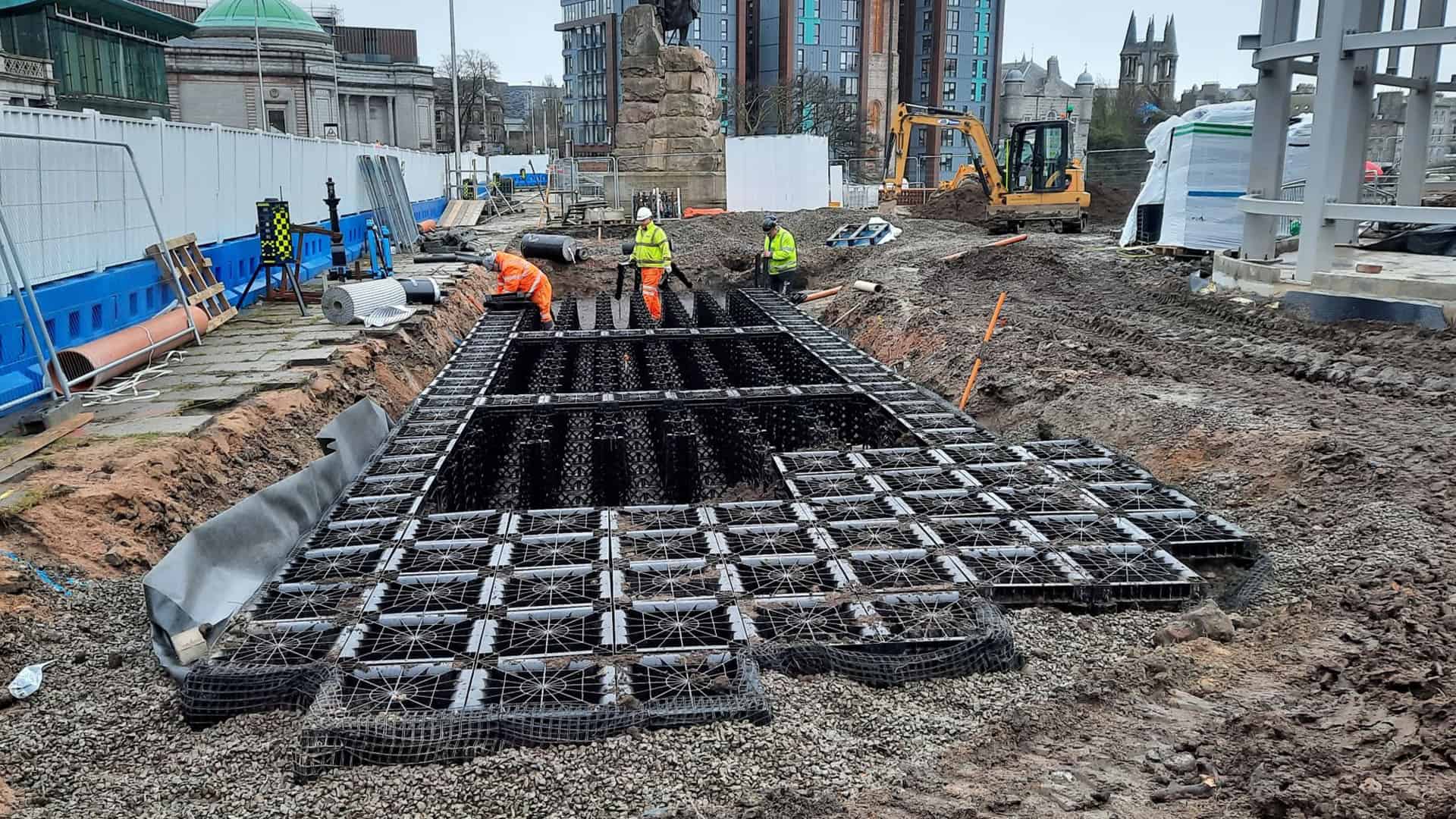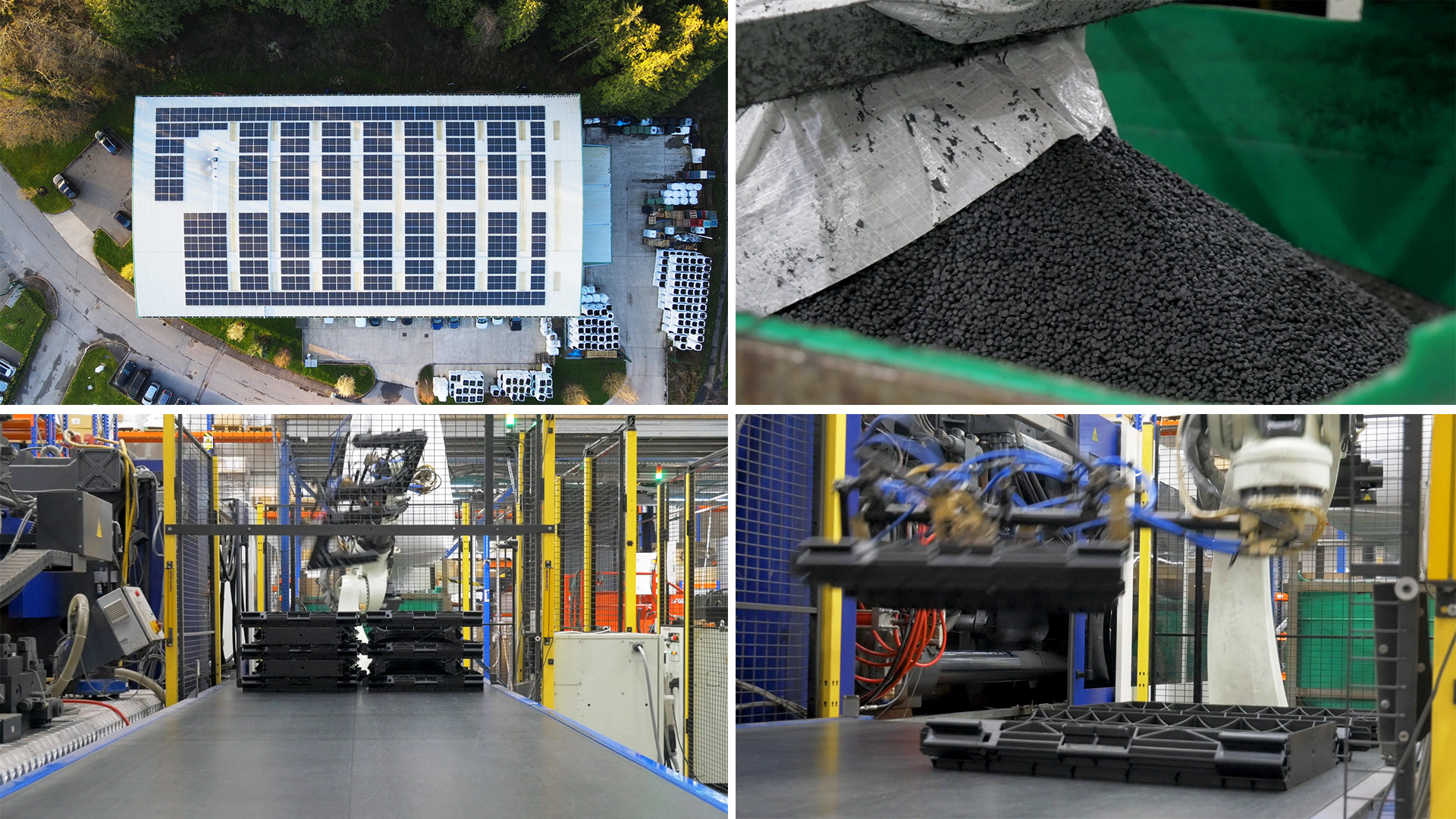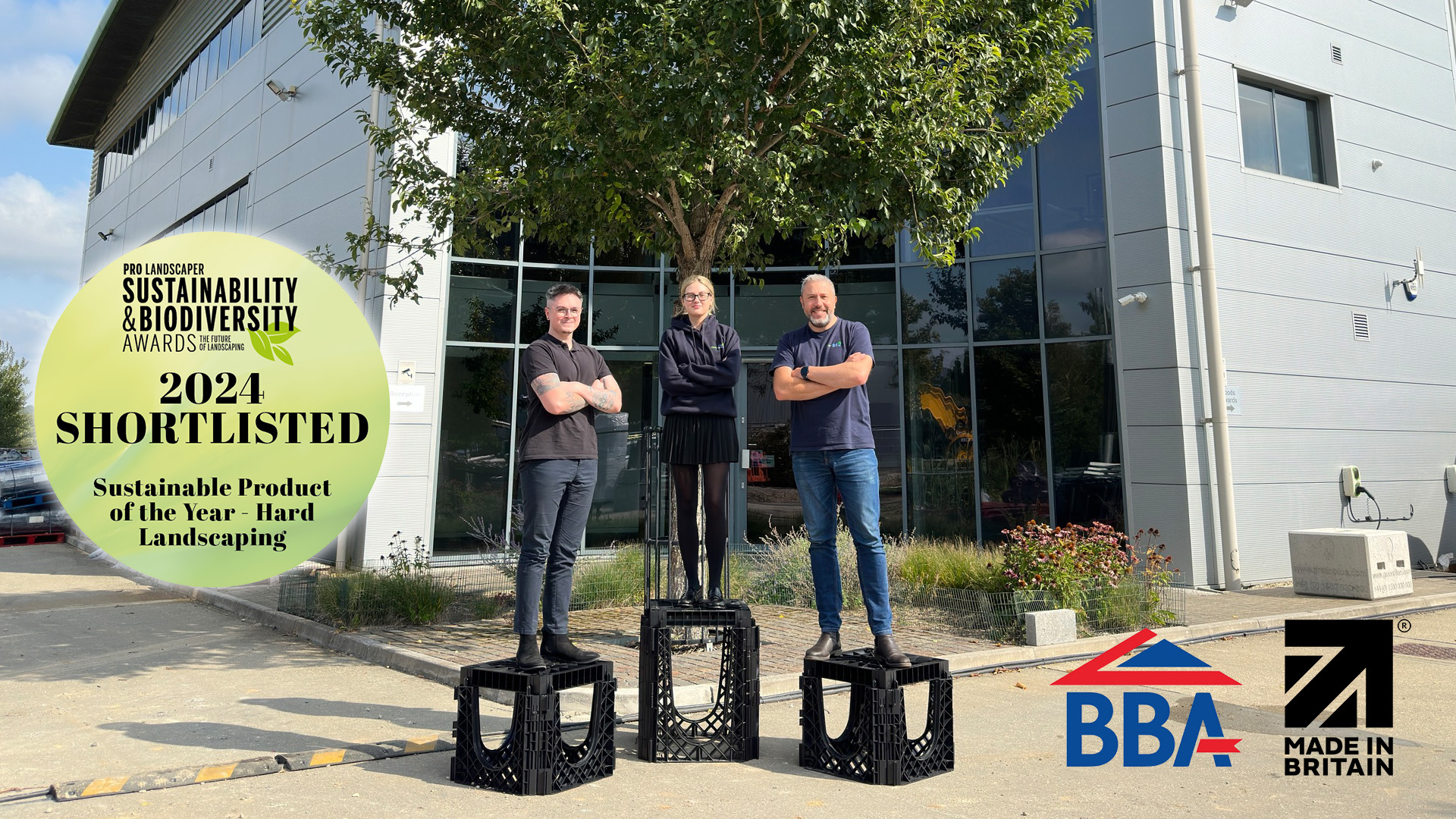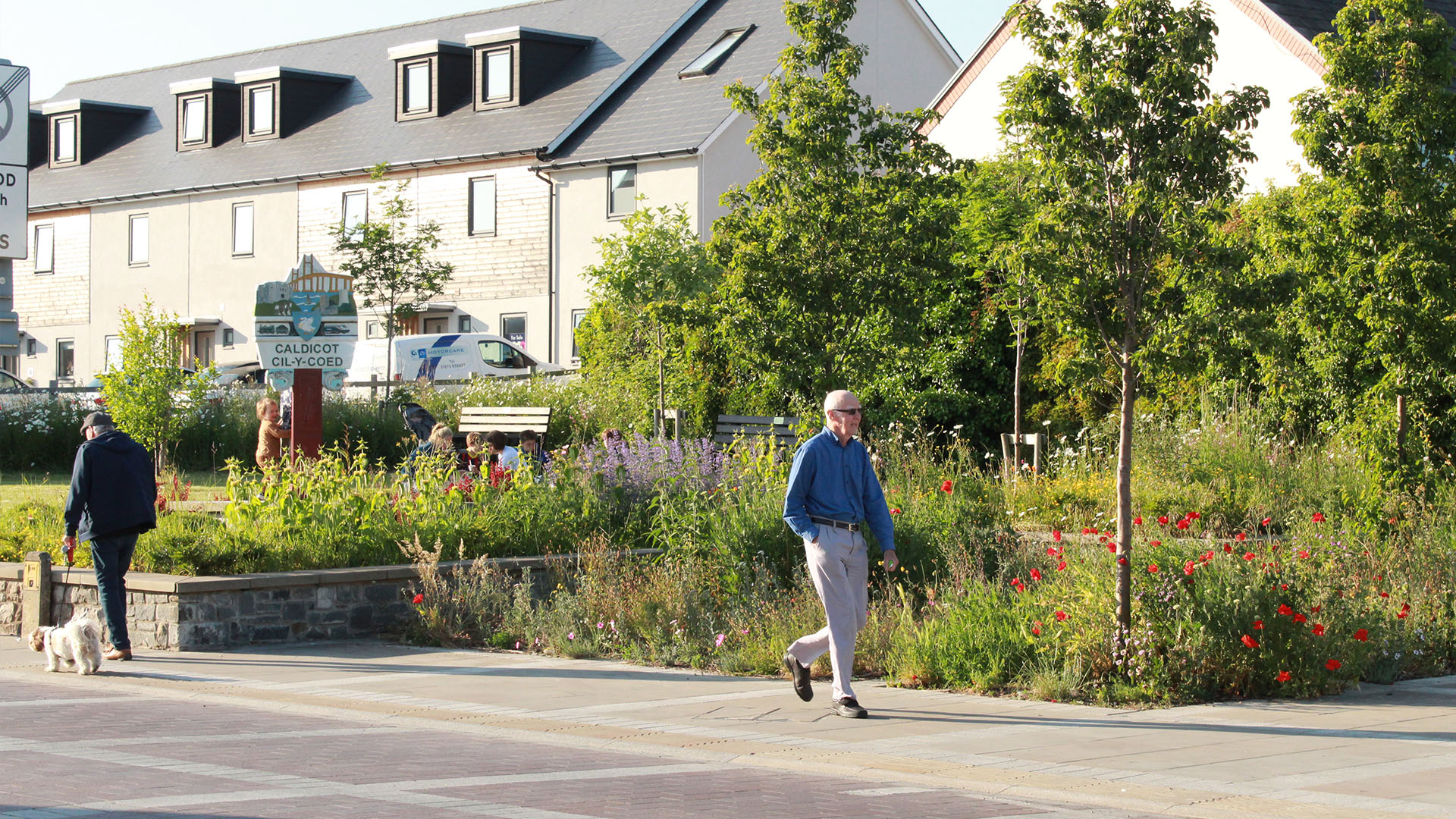In today’s world, sustainable landscape design is more than a trend—it’s necessary. Developers and specifiers increasingly turn to eco-friendly solutions that enhance the environment and deliver long-term economic and social benefits.
GreenBlue Urban, a leader in sustainable urban landscape solutions, provides a path to achieving these goals through innovative, UK-manufactured products and a deep commitment to environmental responsibility.
Sustainable Manufacturing for Long-Term Success
One of the standout features of GreenBlue’s approach is our dedication to sustainable manufacturing. Our flagship product, RootSpace, is the only UK soil cell system made from 100% recycled materials with an Environmental Product Declaration.
This minimises waste, reduces landfill use, and significantly lowers energy consumption during production. Additionally, by focusing on recycled materials instead of raw extraction, we conserve natural resources, supporting a circular economy prioritising recycling and reuse over depletion.
The environmental impact of our sustainable practices extends beyond the manufacturing stage. GreenBlue uses energy-efficient production methods, including solar power and recycled water, further reducing our carbon footprint. This holistic approach ensures that every step in our process, from material sourcing to final product delivery, contributes positively to environmental health.

Local Manufacturing with Global Impact
Choosing GreenBlue products means choosing UK-manufactured solutions with several key benefits. First, sourcing products locally can drastically reduce transportation emissions, which are often significant when importing goods from overseas. This supports sustainability and strengthens the local economy by creating jobs and meeting high environmental and quality standards. UK manufacturers, like GreenBlue, operate under strict regulatory frameworks, guaranteeing that our products meet rigorous sustainability benchmarks.
Another advantage of local manufacturing is supply chain transparency. By choosing GreenBlue Urban, developers gain confidence in the traceability of materials and ethical labour practices. This ensures that projects align with both environmental goals and social responsibility.

Award-Winning Results Through Collaboration and Innovation
Sustainability in landscape design is about more than choosing the right products—it’s about a comprehensive approach that involves thoughtful planning, collaboration, and commitment to quality. GreenBlue’s products, like RootSpace, have been nominated for the Pro Landscaper Sustainability and Biodiversity Award for hard landscaping. It is engineered not only to promote healthy tree growth, improve air quality, and enhance stormwater management but also to ensure that urban spaces are resilient to the challenges of climate change. Our solutions help mitigate the effects of urbanisation, creating healthier environments for current and future generations.
Our commitment to research and development drives continuous innovation in green technologies. GreenBlue’s in-house R&D team works closely with industry experts to monitor and scientifically validate the effectiveness of our systems. This collaboration allows us to develop cutting-edge products that meet the evolving needs of modern urban landscapes, ensuring long-term sustainability and durability.

Building Sustainable Communities
Socially, sustainable landscapes foster a sense of community and well-being. Green spaces, tree-lined streets, and well-designed public areas encourage outdoor activity, social interaction, and community engagement. By creating these spaces, developers enhance the appeal of their projects and contribute to mental and physical health within the community.
A Legacy of Quality and Sustainability
At GreenBlue Urban, we believe that creating award-winning, high-quality landscape projects requires more than innovative design—collaboration, commitment, and a focus on sustainability.
By choosing GreenBlue’s UK-manufactured products, developers can ensure their projects meet environmental standards, enhance urban environments, and leave a legacy of quality, sustainability, and positive social impact.


